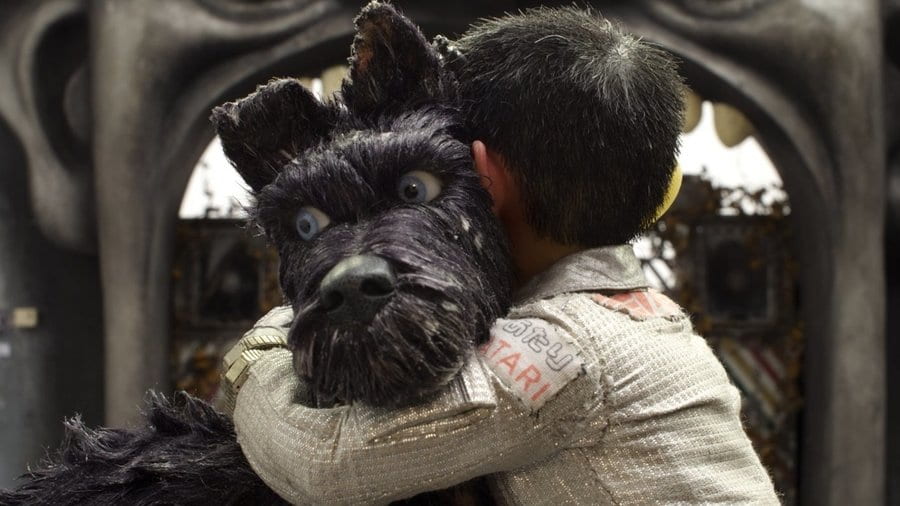“Godhood is just like girlhood: a begging to be believed” -Kristin Chang
“Always an angel, never a god” -boygenius
Continue reading “Review: Like Life in Plastic, ‘Barbie’ is Fantastic”
“Godhood is just like girlhood: a begging to be believed” -Kristin Chang
“Always an angel, never a god” -boygenius
Continue reading “Review: Like Life in Plastic, ‘Barbie’ is Fantastic”
Louisa May Alcott’s Little Women is widely considered to be one of the most beloved coming of age stories of all time. The classic story follows the March sisters, Meg, Jo, Beth, and Amy during the Civil War as they struggle to get by while their father is away. It’s been adapted many times to various stage, film, television, and musical productions. Newest to this family of adaptations is Greta Gerwig’s film starring Saoirse Ronan, Florence Pugh, Emma Watson, and Eliza Scanlen as Jo, Amy, Meg, and Beth March. It is difficult to fully say how unique and pivotal this story is, and how much it is a tribute to women in particular as a female driven story. Little Women details life, loss, and love as it chronicles a bittersweet journey of growing up. Gerwig’s writing and directing, as well as the stellar performance of the cast, captures this spirit with a steadfast and dutiful hand.
Continue reading “Review: ‘Little Women’ is Heartwarming, Grounded, and Just as Relevant as Ever”
“I want you to listen to the very best version of this podcast that you can hear.”
With Booksmart hitting theaters this past weekend (which you should all see), we’re prepping with one of our favorite coming of age teen films, Ladybird. With special guest, Sabrina Pearson, we discuss the relatable aspects of the film, the its nostalgic quality, and how everything within the film works to create a cohesive, lived-in world. So sit back and listen as we reminiscent about our hometowns and parents in the 35th episode of the UW Film Club Podcast. You’ll surely want to call your mom after a listen!
On this week’s episode: Sabrina Pearson and Cynthia Li
You can find us on Facebook at /UWFilmClub, and on Twitter and Instagram @FilmClubUW. Make sure to rate, comment, and subscribe to our podcast on Apple Podcasts, Soundcloud, Spotify, and Google Play, and tune in every Monday for a new episode of the UW Film Club Podcast!
After four years, we finally have Wes Anderson’s latest feature, Isle of Dogs — a two part story about a boy trying to find his dog and a government conspiracy causing the separation. Since Anderson’s last film, the social and political landscape has become rife with division due in large part to a certain individual, but it is in times like these where this film’s themes and messages become more pronounced for audiences.
The story is set 20 years in the future. The city of Megasaki is over run with dogs and an outbreak of dog fever frightens the city. As a precautionary measure, Mayor Kobayashi (Kunichi Nomura) signs an order that bans all dogs to Trash Island. After losing his dog Spot (Liev Schreiber), a young boy named Atari (Koyu Rankin) flies to the island to save him. There he meets a pack of dogs: Rex (Edward Norton), King (Bob Balaban), Boss (Bill Murray), Duke (Jeff Goldblum), and Chief (Bryan Cranston). Together the group goes on a journey to find boy’s best friend while a group of pro-dog student protestors led by foreign exchange student Tracey Walker (Greta Gerwig) try to expose a government plot that falsely demonizes canines.

If that plot sounds eerily familiar, it’s because it draws stark parallels to current events. Even though the story is set in the future, it presents a vision of society not too far from our own, serving as an allegory for disenfranchisement and xenophobia in the modern era. Fear mongering from the government and government officials against dogs directly translates to our own reality as politicians rally against outsiders, and the relationship between Atari and Chief showcases how fundamental misunderstanding can lead to resentment. It’s a timeless and universal message that has an even greater effect with the reality we live in today.
Like Fantastic Mr. Fox, it’s surprising how effective these complex themes are translated into a kid-friendly package. Part of that is due to Anderson’s creative touch and how he uses his trademark Anderson-isms to disguise the message while simultaneously keeping the integrity of it. The prefect framing, the bright and clean color pallet, the ensemble cast of actors, and a beautiful score all amass to something very aesthetically appealing, but uniquely Anderson. Like all stop motion films (such as Laika’s offerings), the animation style has an eloquent, hand crafted look that makes you appreciate the time, care, and detail put into every frame, and when combined with Anderson’s guiding hand, it becomes even more captivating. Every Anderson film is a visual treat full of life, color, and character, and this film is no different.

There is also the discussion about whether Anderson is appropriating Japanese culture. Before writing my own review, I read the perspective of other writers, and have linked two articles I found insightful: here and here. Though I found the film to be appreciative of the culture it portrays (rather than a harsh stereotype), the linked articles better serve the conversation than my words and understanding.
The best feeling I can convey about this film is joy; even though it makes you realize the harsh reality present today, its resolve is uplifting and makes you hopeful of the possibility for something better. At the end of the viewing, you’ll walk out of the theater into the divisive social landscape we inhabit and have a greater sense of compassion, kindness, and understanding for all human beings around you.
Score: 4/5